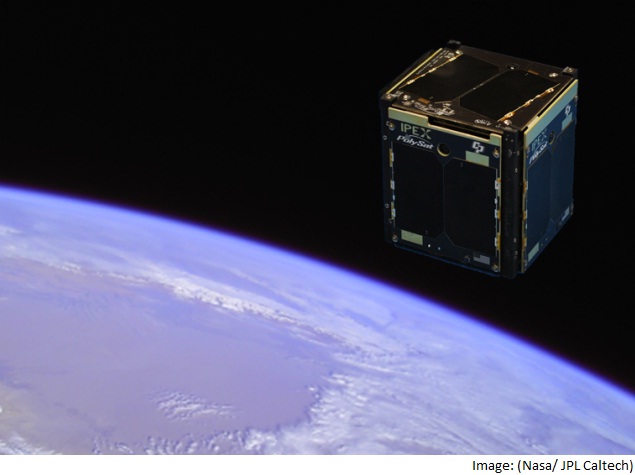- Home
- Science
- Science News
- Kerala Students to Design CubeSat, NanoSat Satellites
Kerala Students to Design CubeSat, NanoSat Satellites

"With so many of Isro divisions and Vikram Sarabhai Space Centre (VSSC) located here it has become a natural space science city. So, a student satellite programme is the perfect fit to rally the resources of any engineering educational institution," said Arun Surendran, strategic director of the Trinity Engineering College.
"We visited the Nanyang Technological University to have a complete understanding of undertaking such an ambitious project. They have a sustainable programme and have been continuously launching their satellites from India using Isro's reliable workhorse PSLV," he said.
"We would like to do a similar programme at the Trinity that can continuously create CubeSats (a miniature satellite for space research with volume of one liter and mass no more than 1.33kg and is made of commercially available off-the-shelf components) and NanoSats (artificial satellite with a mass ratio between one and 10kg) over the years."
"For each group of students graduating out of the team, we will add freshers so that the team strength stays nearly constant," added Surendran.
This ambitious project is sponsored by an Oman-based Al Adrak company. Hence the name is of the satellite is Trinity Adrak Student Satellite (Tassat).
Various departments as well as the Advanced Design and Manufacturing Lab of Trinity College will pool in their expertise towards accomplishing this project in a timely and cost-effective manner.
Mary Matilda, principal-in-charge of the college, said Tassat will be a great boost for all the departments as it shall open doors for students in exploring new areas and sharpening their engineering skills to develop something unique.
Catch the latest from the Consumer Electronics Show on Gadgets 360, at our CES 2026 hub.
Related Stories
- Samsung Galaxy Unpacked 2025
- ChatGPT
- Redmi Note 14 Pro+
- iPhone 16
- Apple Vision Pro
- Oneplus 12
- OnePlus Nord CE 3 Lite 5G
- iPhone 13
- Xiaomi 14 Pro
- Oppo Find N3
- Tecno Spark Go (2023)
- Realme V30
- Best Phones Under 25000
- Samsung Galaxy S24 Series
- Cryptocurrency
- iQoo 12
- Samsung Galaxy S24 Ultra
- Giottus
- Samsung Galaxy Z Flip 5
- Apple 'Scary Fast'
- Housefull 5
- GoPro Hero 12 Black Review
- Invincible Season 2
- JioGlass
- HD Ready TV
- Laptop Under 50000
- Smartwatch Under 10000
- Latest Mobile Phones
- Compare Phones
- Honor Magic 8 RSR Porsche Design
- Honor Magic 8 Pro Air
- Infinix Note Edge
- Lava Blaze Duo 3
- Tecno Spark Go 3
- iQOO Z11 Turbo
- OPPO A6c
- Samsung Galaxy A07 5G
- Lenovo Yoga Slim 7x (2025)
- Lenovo Yoga Slim 7a
- Lenovo Idea Tab Plus
- Realme Pad 3
- Moto Watch
- Garmin Quatix 8 Pro
- Haier H5E Series
- Acerpure Nitro Z Series 100-inch QLED TV
- Asus ROG Ally
- Nintendo Switch Lite
- Haier 1.6 Ton 5 Star Inverter Split AC (HSU19G-MZAID5BN-INV)
- Haier 1.6 Ton 5 Star Inverter Split AC (HSU19G-MZAIM5BN-INV)







![[Sponsored] Haier C90 OLED TV | Dolby Vision IQ, 144Hz OLED and Google TV in Action](https://www.gadgets360.com/static/mobile/images/spacer.png)









